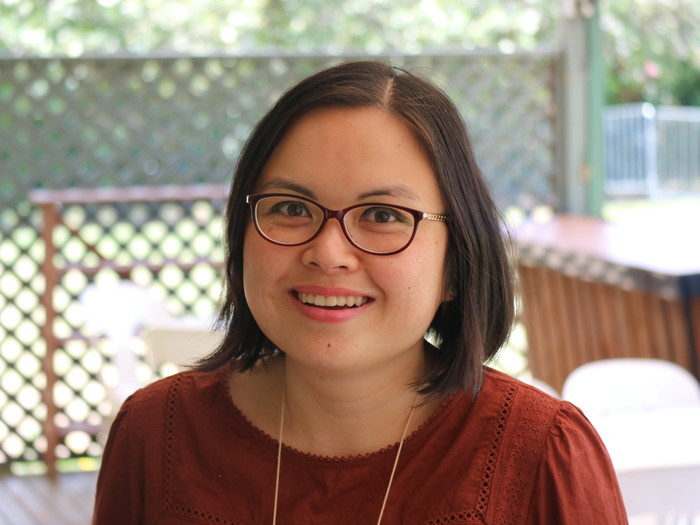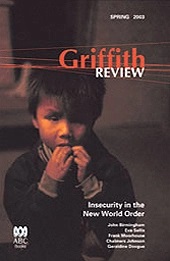
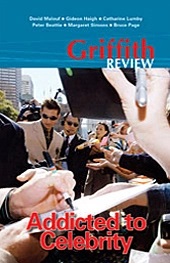

Books in series

Insecurity in the New World Order
2003

Griffith Review 5
Addicted to Celebrity
2004

Griffith Review 7
The Lure of Fundamentalism
2005
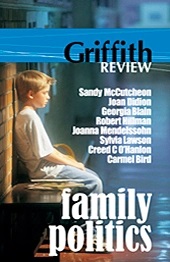
Griffith Review 10
Family Politics
2005

Griffith Review 14
The Trouble with Paradise
2006
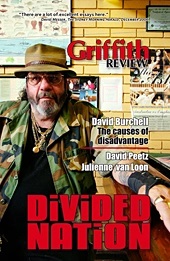
Griffith Review 15
Divided Nation
2007

Griffith REVIEW 17
Staying Alive
2007
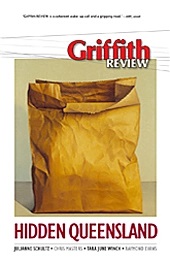
Griffith Review 21
Hidden Queensland
2008

Griffith Review 22
MoneySexPower
2008

Griffith REVIEW 23
Essentially Creative
2009

Griffith Review 24
Participation Society
2009

Griffith REVIEW 25
After the Crisis
2009

Griffith Review 26
The Fiction Issue
2009

Griffith Review 27
Food Chain
2010

Griffith Review 30
The Annual Fiction Edition
2010

Griffith Review 31
Ways of Seeing
2011

Griffith Review 32
Wicked Problems, Exquisite Dilemmas
2011

Griffith Review 33
Such Is Life
2011
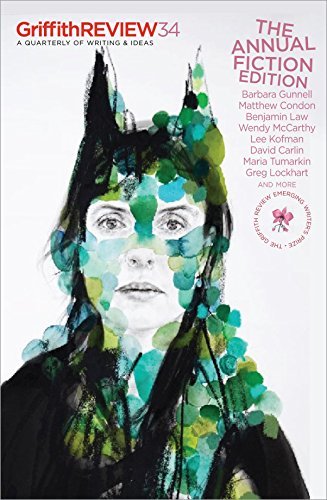
Griffith Review 34, Summer 2011
The Annual Fiction Edition
2025

Griffith Review 35
Surviving
2012

Griffith Review 36
What Is Australia For?
2012

Griffith Review 37
Small World
2012

Griffith Review 38
Annual Fiction Edition
2012

Griffith Review 39
Tasmania - The Tipping Point?
2013

Griffith Review 40
Women & Power
2013

Griffith Review 41
Now we are ten
2013

Griffith Review 42
2013

Griffith REVIEW 43
Pacific Highways
2014

The Way We Work
2014

Griffith REVIEW 46
Forgotten Stories The Novella Project II
2014

Griffith Review 47
Looking West
2015

Griffith Review 48
Enduring Legacies
2015

Griffith Review 49
New Asia Now
2015

Griffith Review 51
Fixing the System
2016
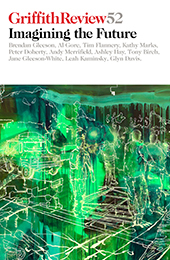
Griffith Review 52
Imagining the Future
2016

Griffith Review 54, Earthly Delights, the Novella Project IV
2016

Griffith Review 55, State of Hope
2017

Griffith Review 56
Millennials Strike Back
2017
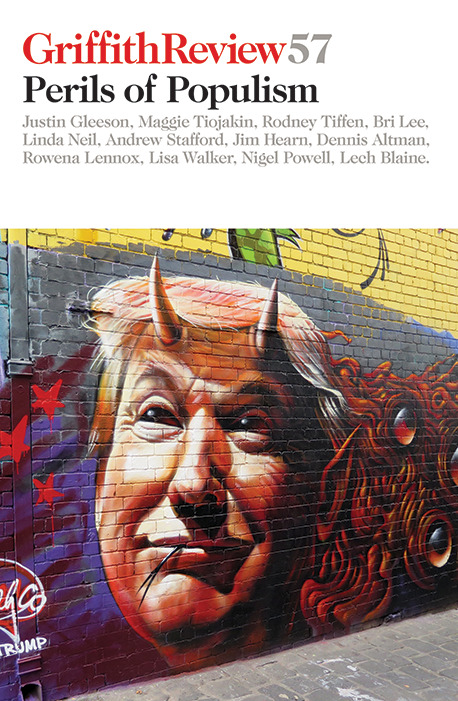
Griffith Review 57
Perils of Populism
2017
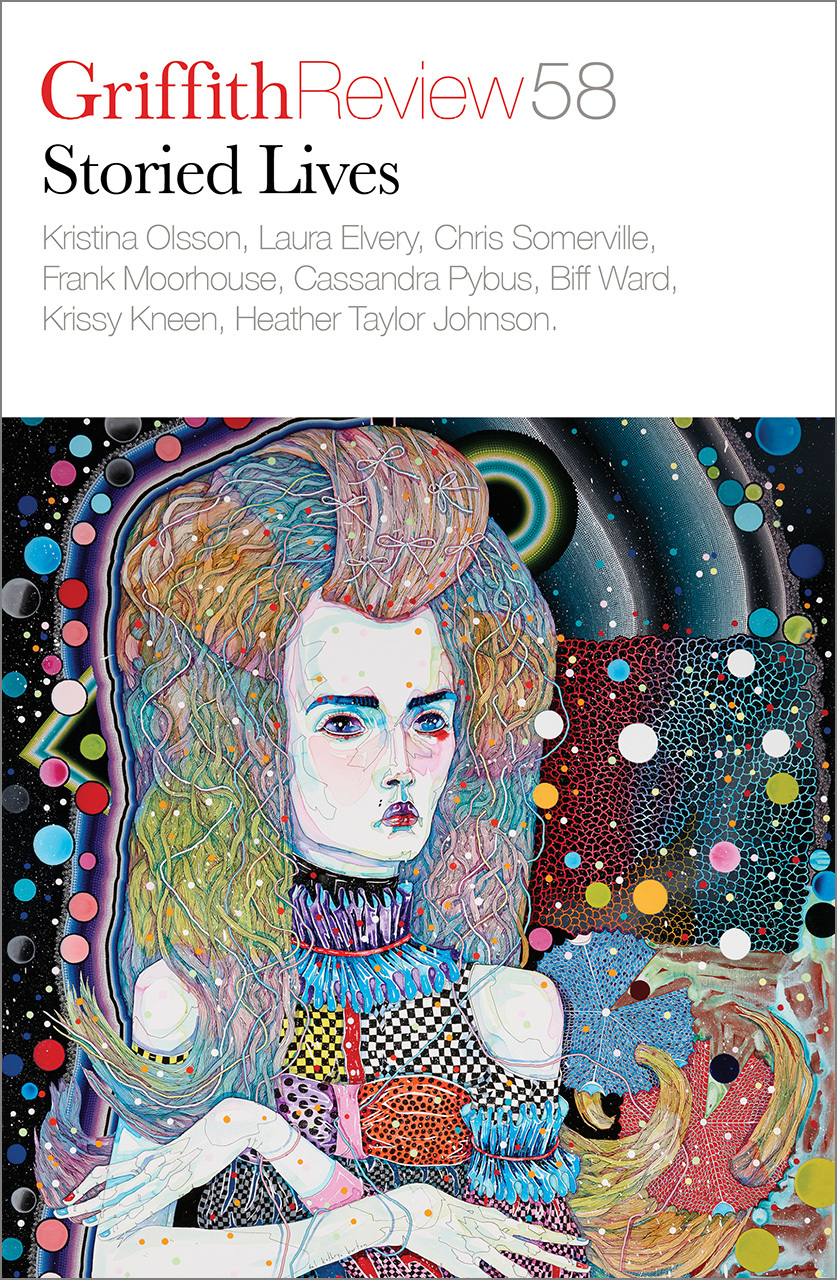
Griffith Review 58
Storied Lives
2017
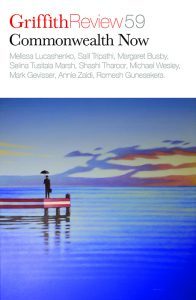
Griffith Review 59
Commonwealth Now
2017
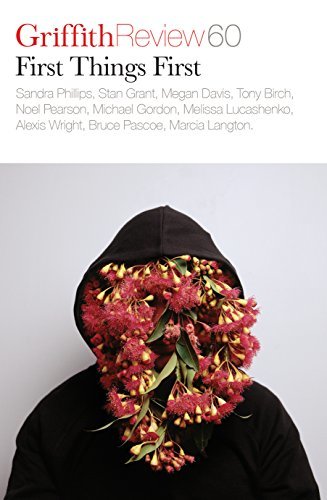
Griffith Review 60
First Things First
2018
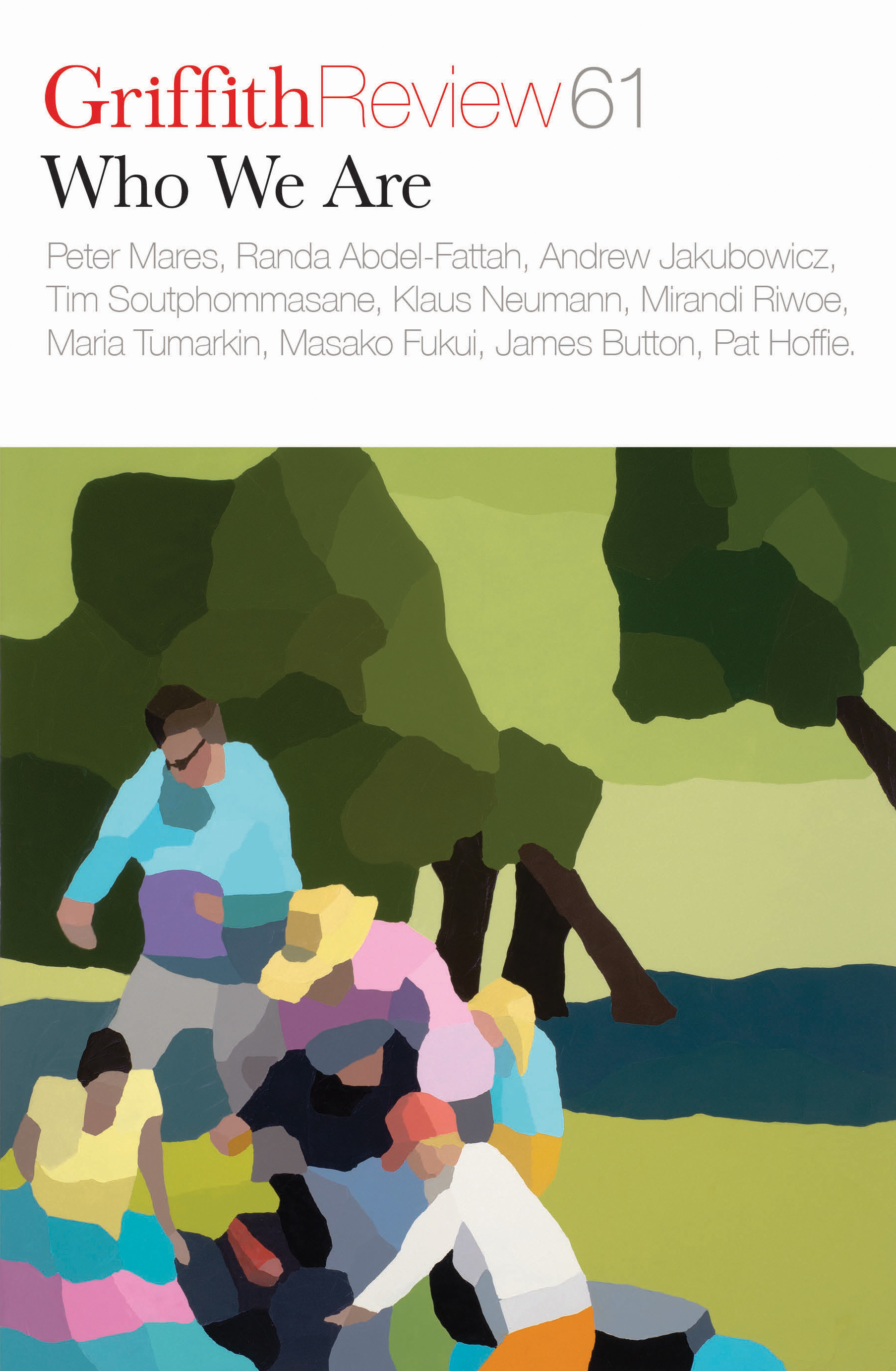
Griffith Review 61
Who We Are
2018
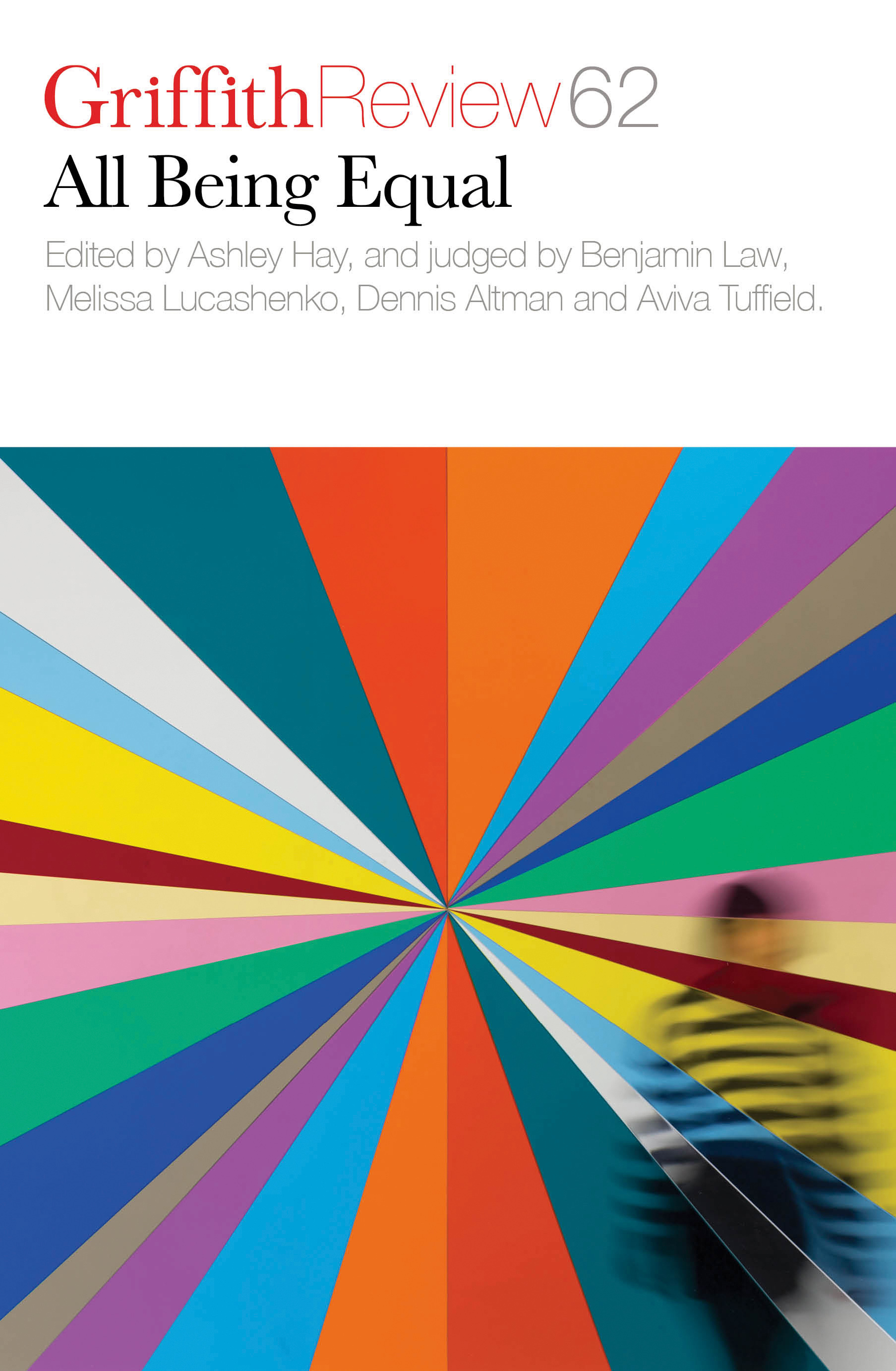
Griffith Review 62
All Being Equal – The Novella Project VI
2018
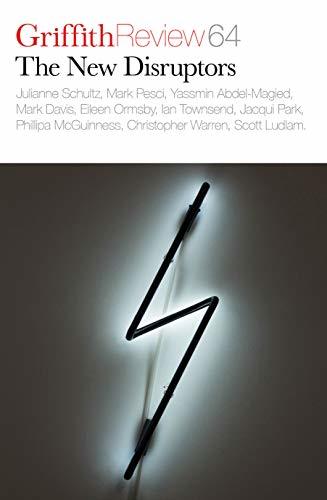
Griffith Review 64
The New Disruptors
2019
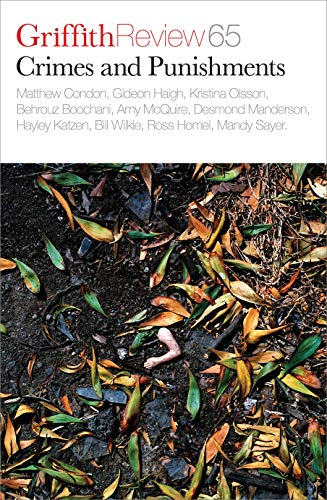
Griffith Review 65
Crimes and Punishments
2019
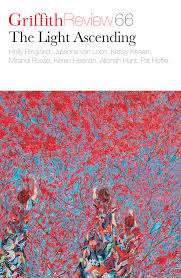
Griffith Review 66 The Light Ascending The Novella Project VII
2019
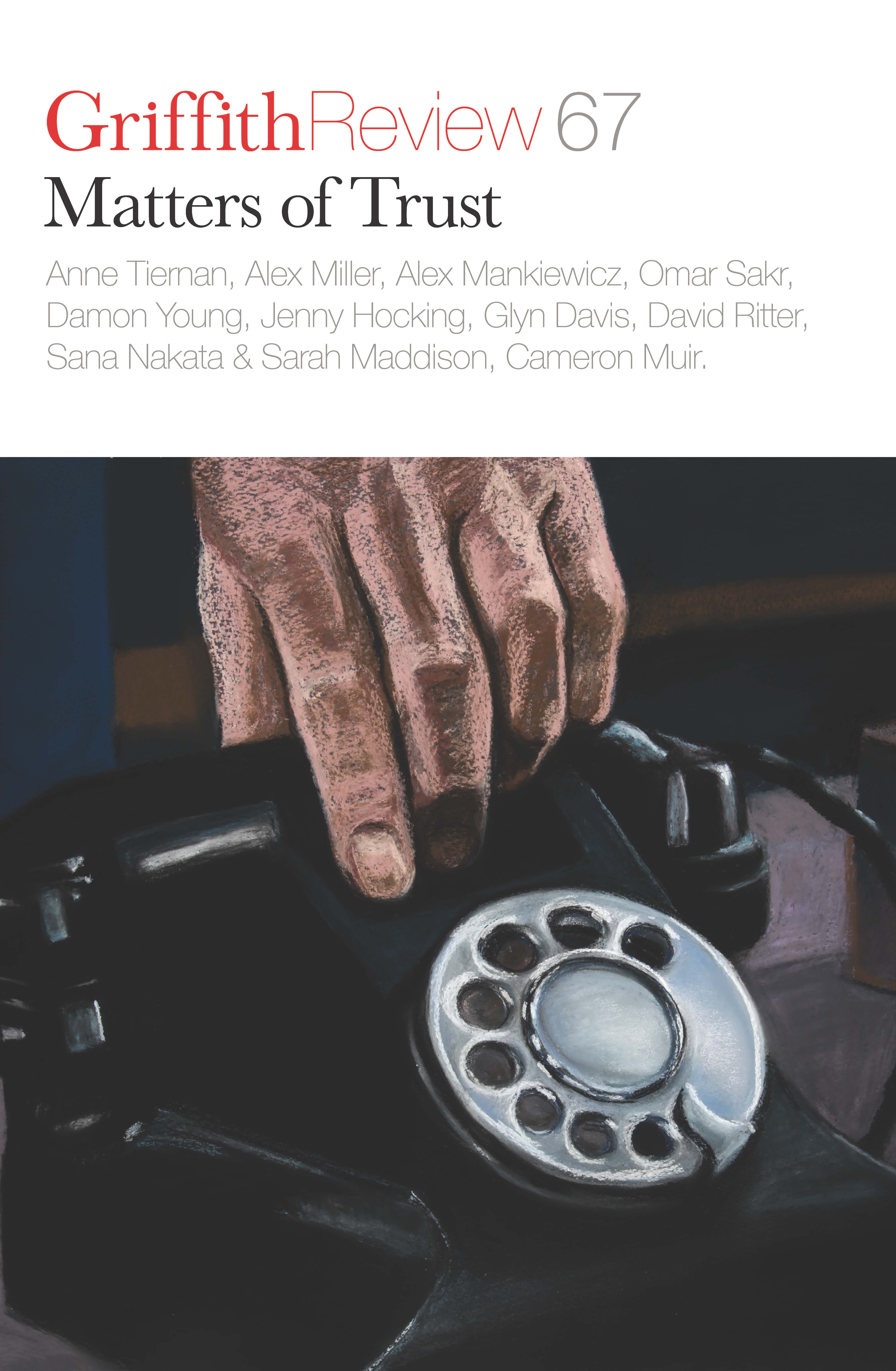
Griffith Review 67 Matters of Trust
2020
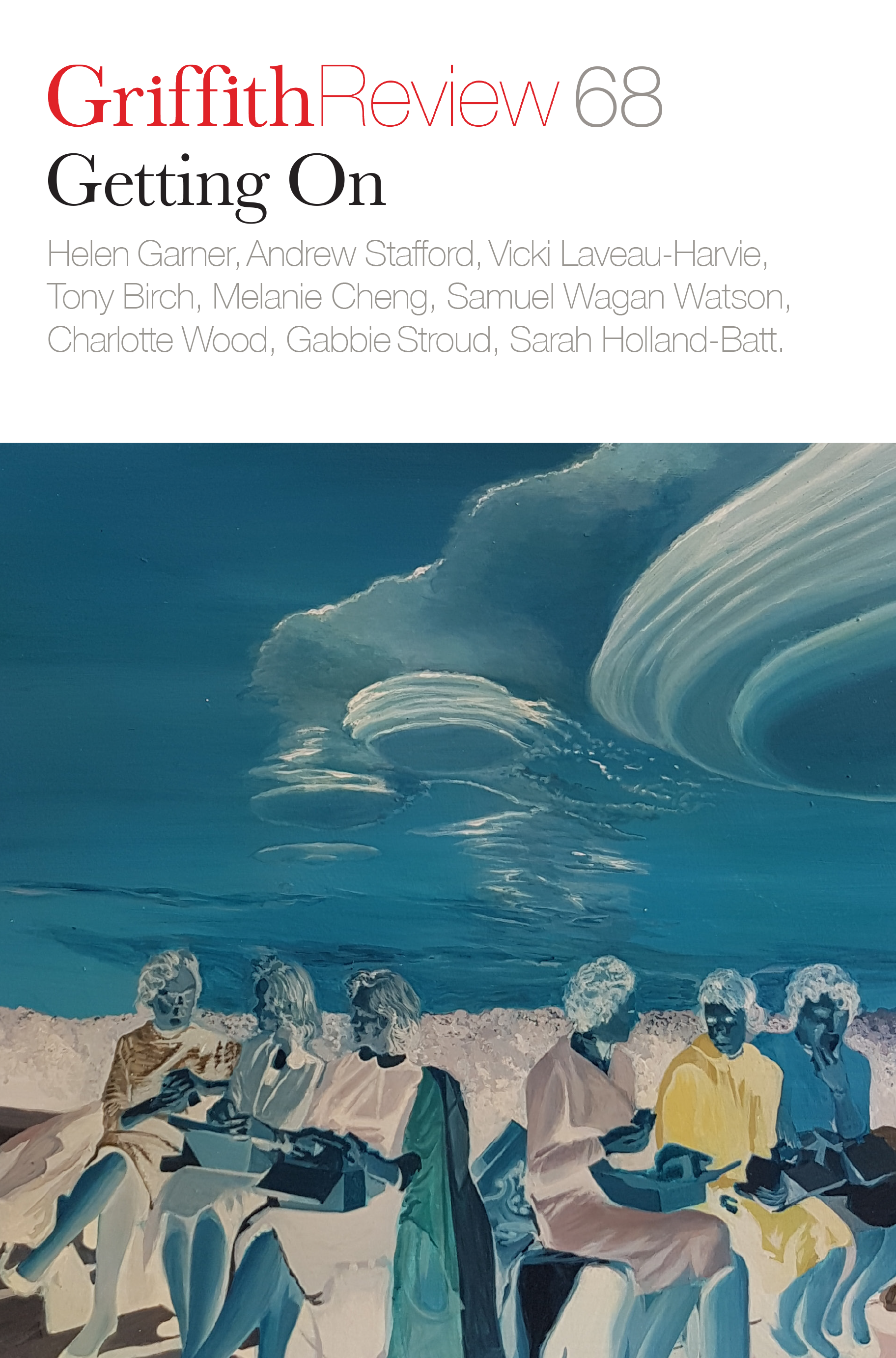
Griffith Review 68 Getting On
2020
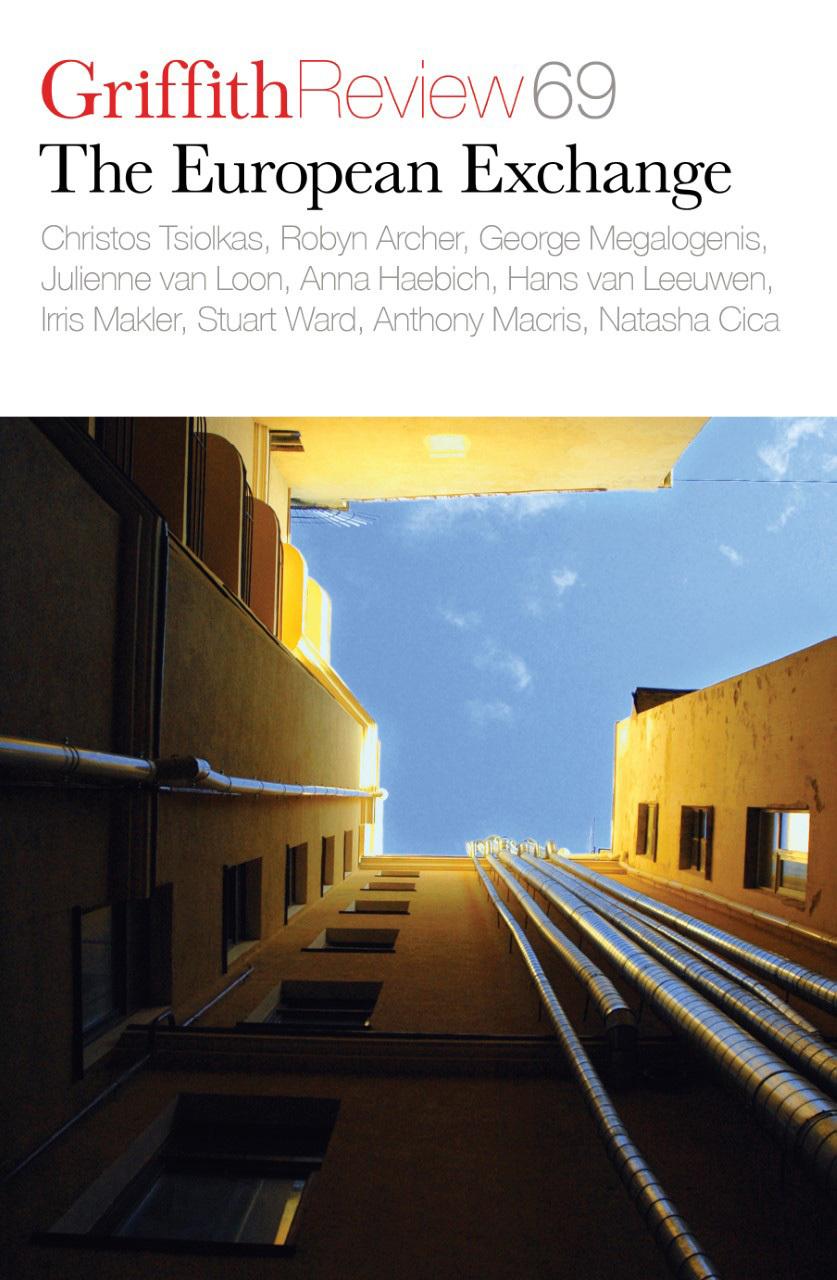
Griffith Review 69
The European Exchange
2020
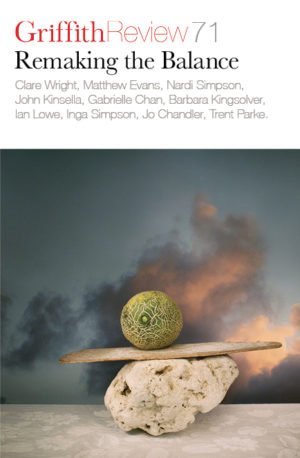
Griffith Review 71
Remaking the Balance
2021
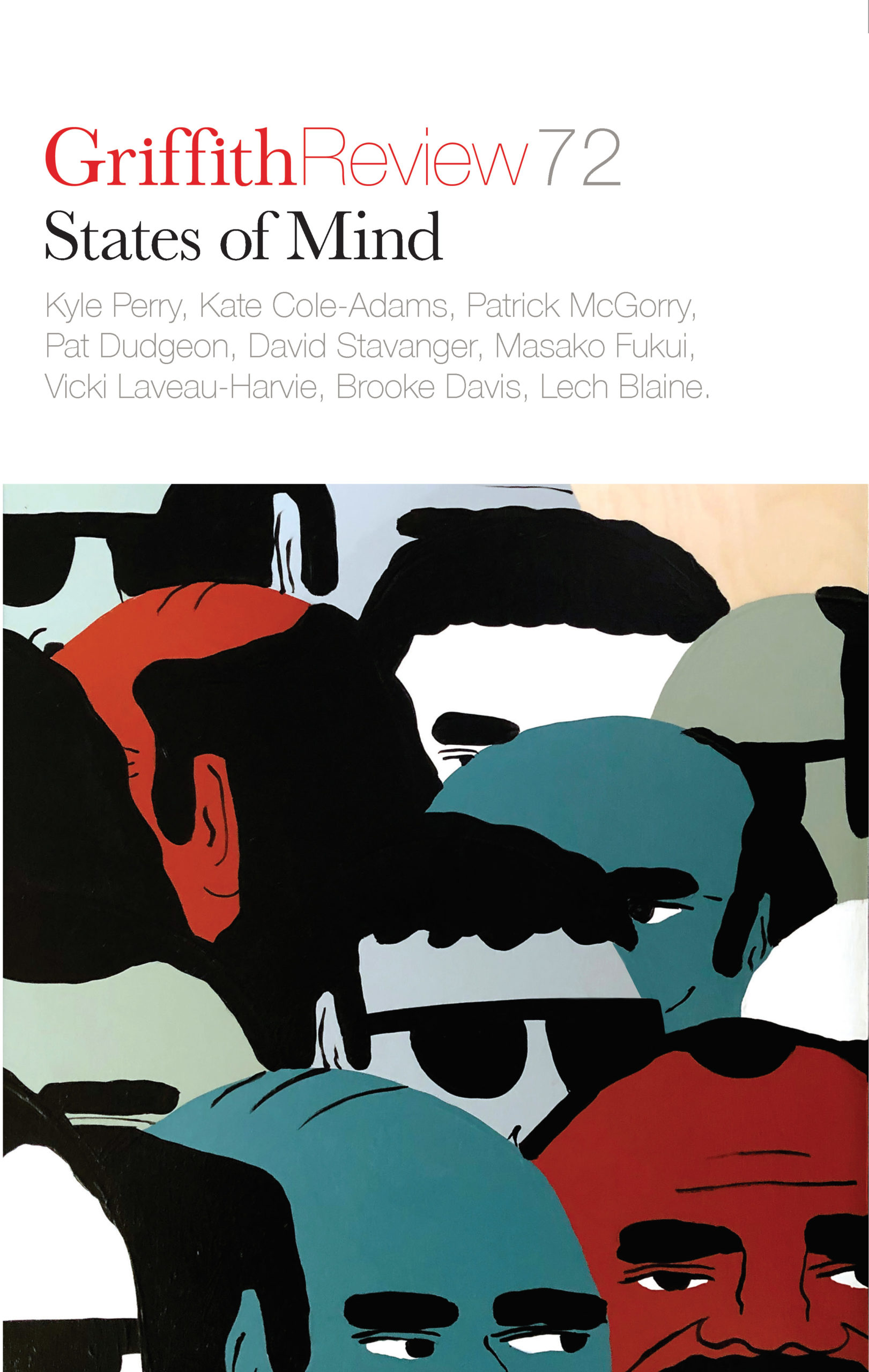
Griffith Review 72 States of Mind
2021
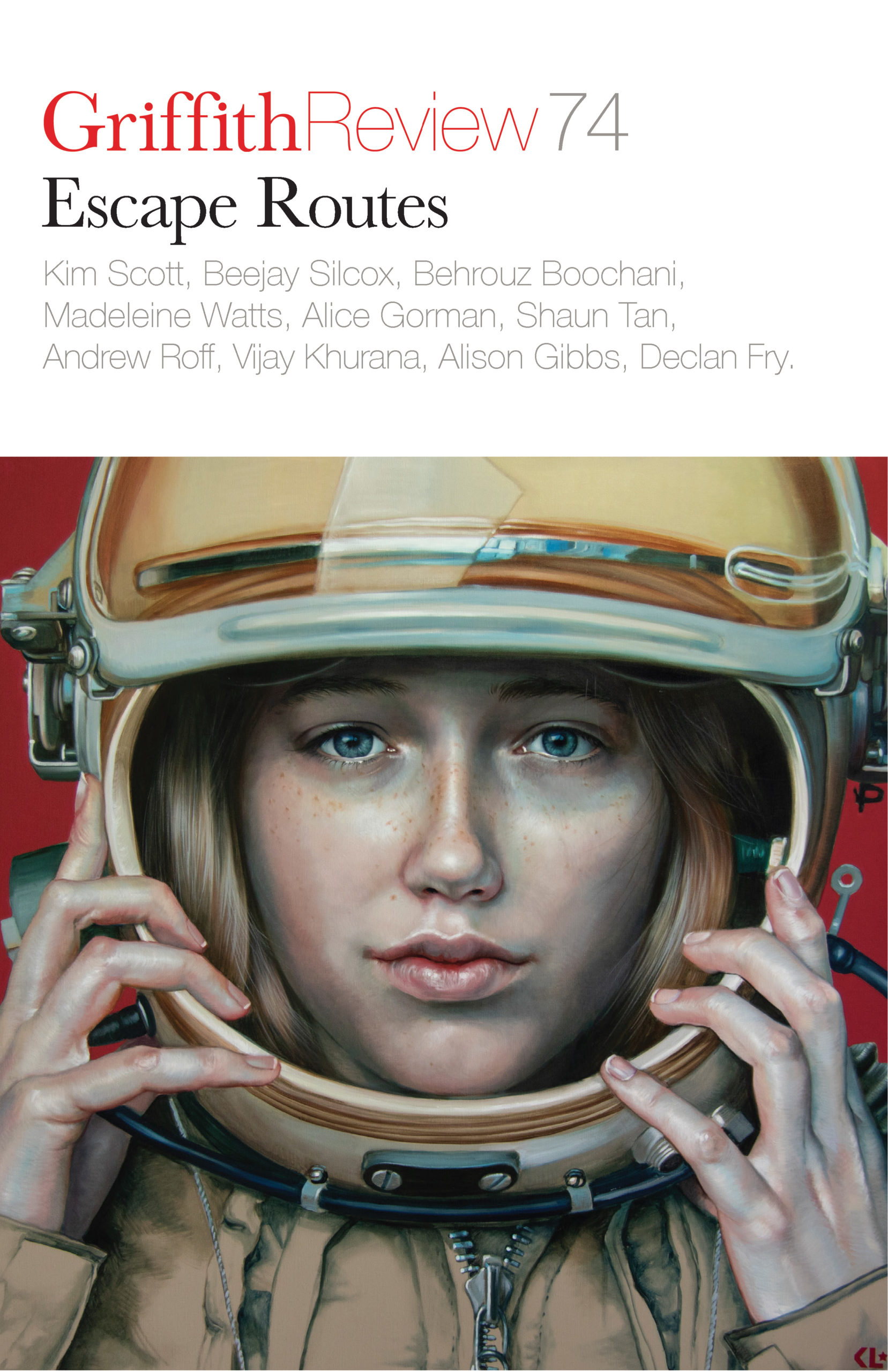
Griffith Review 74
Escape Routes
2021
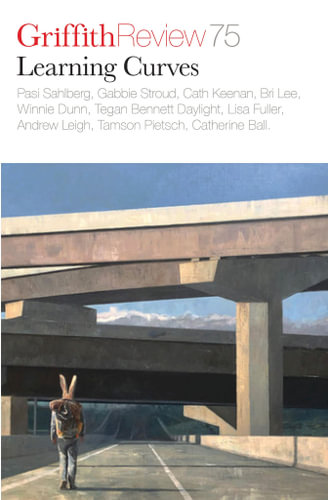
Learning Curves
2022
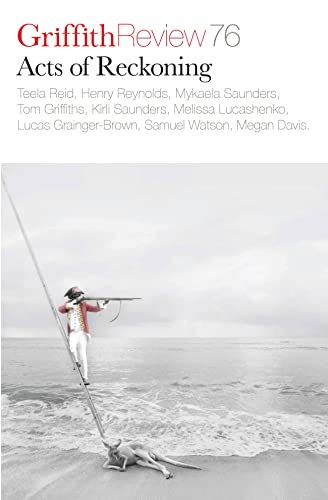
Griffith Review 76 Acts of Reckoning
2022
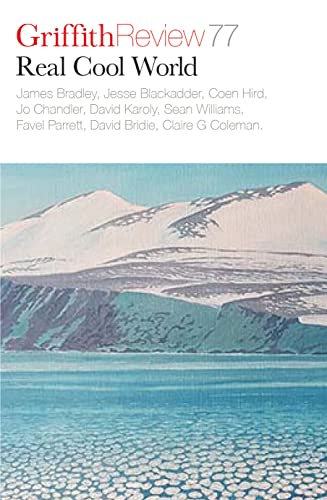
Griffith Review 77
Real Cool World
2022
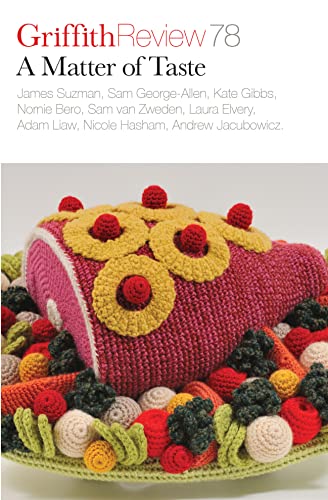
Griffith Review 78
A Matter of Taste
2022
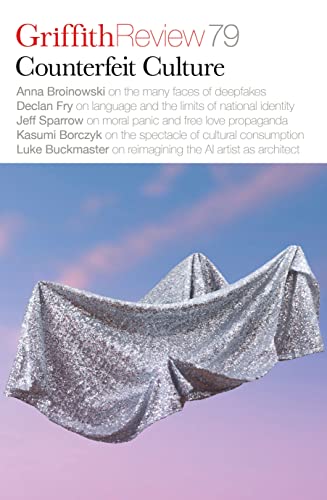
Griffith Review 79
Counterfeit Culture
2023
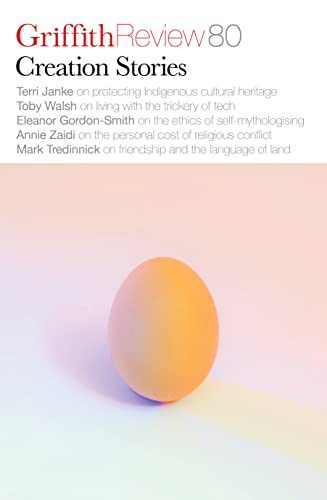
Griffith Review 80
Creation Stories
2023
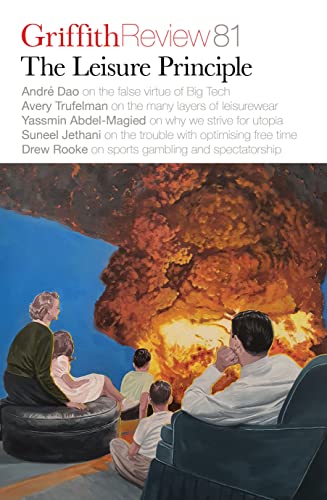
Griffith Review 81
The Leisure Principle
2023
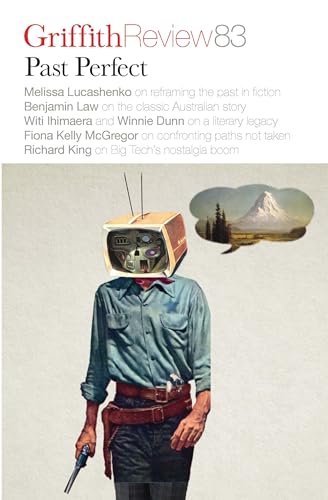
Griffith Review 83
Past Perfect
2024
Authors

Carody Culver is the editor of Griffith Review. She was a contributing editor for Peppermint magazine and has written for publications including Kill Your Darlings, The Lifted Brow and Books+Publishing. Her chapbook, The Morgue I Think the Deader It Gets, was published by Cordite in 2022, and she’s been a featured Australian poet on the Best American Poetry blog.

Hugh Mackay is a social researcher and novelist who has made a lifelong study of the attitudes and behaviour of Australians. He is the author of twelve books, including five bestsellers. The second edition of his latest non-fiction book, Advance Australia…Where? was published in September 2008, and his fifth novel, Ways of Escape was published in May 2009. He is a fellow of the Australian Psychological Society and received the University of Sydney’s 2004 Alumni Award for community service. In recognition of his pioneering work in social research, Hugh has been awarded honorary doctorates by Charles Sturt, Macquarie and NSW universities. He is a former deputy chairman of the Australia Council, a former chairman of trustees of Sydney Grammar School, and was the inaugural chairman of the ACT government’s Community Inclusion Board. He was a newspaper columnist for almost 30 years and now writes occasionally for The Sydney Morning Herald, The Age and The West Australian. He is a frequent guest on ABC radio.
- Biography from Hugh Mackay's website

Cory Taylor was born in 1955 and was an award-winning screenwriter who has also published short fiction and children’s books. Her first novel, Me and Mr Booker, won the Commonwealth Writers Prize (Pacific Region) and her second, My Beautiful Enemy, was shortlisted for the Miles Franklin Literary Award. Her final book was Dying: A Memoir. Taylor was survived by her Japanese-born artist husband of 33 years, Shin, and their sons, Nat and Dan, both in their 20s.



Nick Earls is the author of twelve books, including bestselling novels such as Zigzag Street, Bachelor Kisses, Perfect Skin and World of Chickens. His work has been published internationally in English and also in translation, and this led to him being a finalist in the Premier of Queensland’s Awards for Export Achievement in 1999. Zigzag Street won a Betty Trask Award in the UK in 1998, and is currently being developed into a feature film. Bachelor Kisses was one of Who Weekly’s Books of the Year in 1998. Perfect Skin was the only novel nominated for an Australian Comedy Award in 2003, and has recently been filmed in Italy. He has written five novels with teenage central characters. 48 Shades of Brown was awarded Book of the Year (older readers) by the Children’s Book Council in 2000, and in the US it was a Kirkus Reviews selection in its books of the year for 2004. A feature film adapted from the novel was released in Australia by Buena Vista International in August 2006, and has subsequently screened at festivals in North America and Europe. His earlier young-adult novel, After January, was also an award-winner. After January, 48 Shades of Brown, Zigzag Street and Perfect Skin have all been successfully adapted for theatre by La Boite, and the Zigzag Street play toured nationally in 2005. Nick Earls was the founding chair of the Australian arm of the international aid agency War Child and is now a War Child ambassador. He is or has also been patron of Kids Who Make a Difference and Hands on Art, and an honorary ambassador for both the Mater Foundation and the Abused Child Trust. On top of that, he was the face of Brisbane Marketing’s ‘Downtown Brisbane’ and ‘Experience Brisbane’ campaigns. His contribution to writing in Queensland led to him being awarded the Queensland Writers Centre’s inaugural Johnno award in 2001 and a Centenary Medal in 2003. His work as a writer, in writing industry development and in support of humanitarian causes led to him being named University of Queensland Alumnus of the Year in 2006. He was also the Queensland Multicultural Champion for 2006. He has an honours degree in Medicine from the University of Queensland, and has lived in Brisbane since migrating as an eight-year-old from Northern Ireland in 1972. London’s Mirror newspaper has called him ‘the first Aussie to make me laugh out loud since Jason Donovan’. His latest novel is Joel and Cat Set the Story Straight, co-written with Rebecca Sparrow.
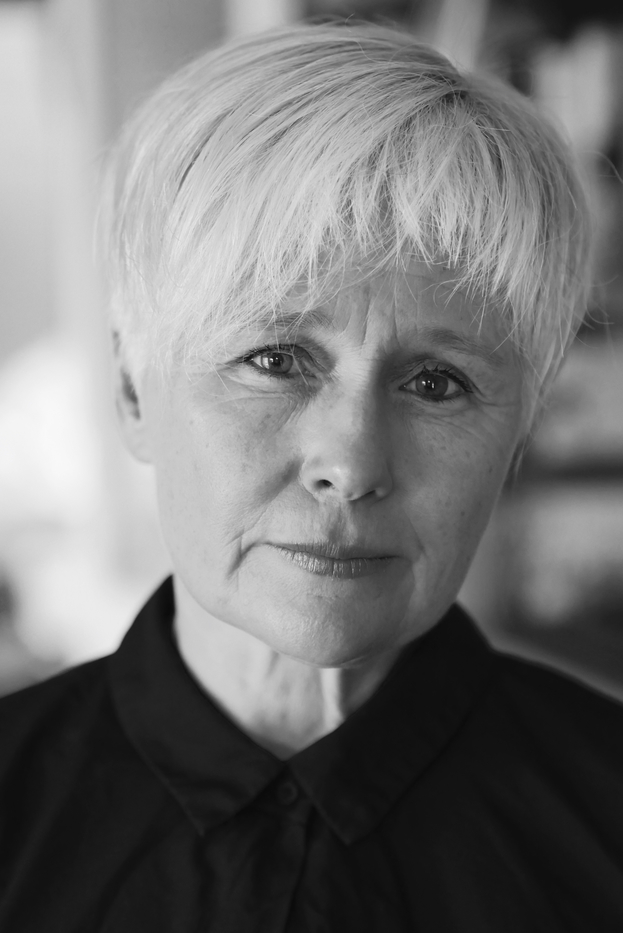
Ashley Hay’s new novel, A Hundred Small Lessons, was published in Australia, the US and the UK and was shortlisted for categories in the 2017 Queensland Literary Awards. Set in her new home city of Brisbane, it traces the intertwined lives of two women from different generations through a story of love, and of life. It takes account of what it means to be mother or daughter; father or son and tells a rich and intimate story of how we feel what it is to be human, and how place can transform who we are. Her previous novel, The Railwayman’s Wife, was published in Australia, the UK, the US, and is heading for translation into Italian, French and Dutch. It won the Colin Roderick Prize (awarded by the Foundation for Australian Literary Studies), as well as the People's Choice award in the 2014 NSW Premier's Prize, and was also longlisted for both the Miles Franklin and Nita B. Kibble awards. Her first novel, The Body in the Clouds (2010), was shortlisted for categories in the Commonwealth Writers’ Prize and the NSW and WA premier’s prizes, and longlisted for the International IMPAC Dublin Literary Award. Her previous books span fiction and non-fiction and include Gum: The Story of Eucalypts and Their Champions (2002), Museum (2007; with visual artist Robyn Stacey), and Best Australian Science Writing 2014 (as editor)s A writer for more than 20 years, her essays and short stories have appeared in volumes including the Griffith Review, Best Australian Essays (2003), Best Australian Short Stories (2012), and Best Australian Science Writing (2012), and have been awarded various accolades in Australia and overseas. In 2016, she received the Bragg UNSW Press Prize for Science Writing.
